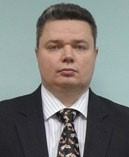THE CONTEMPORARY SITUATION ABOUT THE EUROPEAN LANGUAGES
Аннотация
The European Union has 23 official languages, but only some of them uses in daily communication and official summits. It is very expensive for European budget to use all of the official languages all of time and because of it all of the languages uses only at the session of the European Parliament. The negotiations about one or some official languages are very difficult for member states. The languages of minorities also have the protection from the side of European commission and the internal institutions of the state. The European Union really needs the appropriate and effective measures directed to the European language policy.
Ключевые слова
Полный текст:
 >PDF (English)
>PDF (English)
Литература
http://ec.europa.eu/education/languages/languages-of-europe/doc141_en.htm/ The European Commission Website.
http://ru.wikipedia.org/ Wikipedia. The Free encyclopedia.
Alpatov V. Language question is always derivative from the state/The new times. 2007. №6.
Altbah F: The Higher education and WTO: madness of globalization/ F. Altbah//Alma mater: Bulletin of High school. 2001. № 6. P. 39–42.
Ammon U. Language conflicts in the European Union // International Journal of Applied Linguistics. 2006. V. 16. N. 3. Р. 319-338.
De Swaan A. The language predicament of the EU since the enlargements // Sociolinguistica. 2007. N 21. Р. 1-21.
European charter for Regional and Minority languages, Strasburg 1992
Grin F. Coûts et justice linguistique dans l’élargissement de l’Union européenne // Panoramiques. 2004. N 69. 4-e trimestre. P. 97-104.
High level group of multilingualism. Comission of the European Communities/ Final Report. 2007. 36 p.
Kolin G. Global problems of the society informatization: informational inequality / G/ Kolin // Alma mater: Bulletin of High school. 2000. № 6. P. 27–30
Language Planning and Policy in Europe / Edited by R.B. Baldauf Jr., R.B. Kaplan., 2005. V 1-3.
Linguistic encyclopaedic dictionary /Edited by V. Yartsev. M. Sov.encyclopedy, 1990.
Outcomes of the European Commission’s public consultation on multilingualism.14 September – 15 November 2007. 2007. 28 р.
Pfromm R. Einleitung // Nationalsprachen und die Europaeische Gemeinschaft. Probleme am Beispiel der deutschen, franzősischen und englischen Sprache. Műnchen.: Olzog Verlag, 1989. S. 3-5.
Riagain D. Voces Diversae: Lesser-Used Language Education in Europe. Belfast.: Series Belfast Studies in Language, Culture and Politics, 2006. .V. 15. 197 р.
Smirnova O. French language in the modern world/Bulletin of the State University of Nizhny Novgorod .2004. P.242-249.
Theo.V.-E. Multilingualism in the European Union // International Journal of Applied Linguistics. 2005. V. 15.3. P. 264-281.
Weydt H. The inferiority of non-native speaker and its political consequences // Language: Issues of Inequality. Mexico : Universidad Nacional Autonoma De Mexico.Mexico, 2003. P. 173-188.
Wright S. Language Networks in European Parliament: the Rise of English // The 15th Congress of Applied Linguistics. Multilingualism: Challenges and Opportunities. Essen, 2008.
Ссылки
- На текущий момент ссылки отсутствуют.
(c) 2016 International Journal of Advanced Studies
Контент доступен под лицензией Creative Commons Attribution-NonCommercial-NoDerivs 4.0.
ISSN 2328-1391 (print), ISSN 2227-930X (online)

